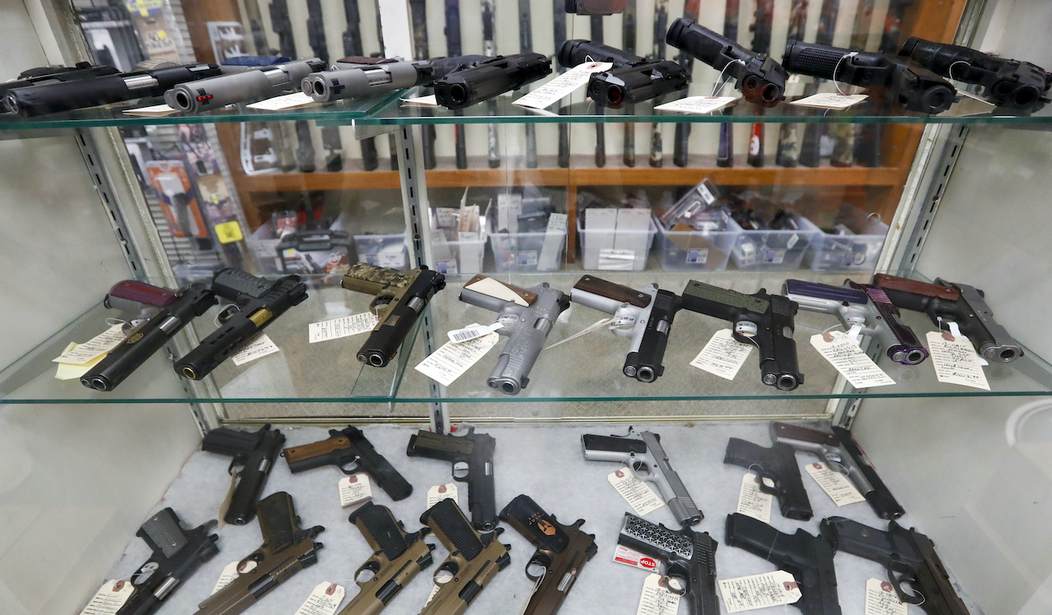Compared to some of the anti-gun legislation we’ve already seen introduced in states like Illinois and Washington, the anti-2A items topping the “to-do” list for Democrats in Minnesota may seem to be relatively modest; “universal” background checks and the establishment of a “red flag” firearms seizure law. That’s probably more a function of the narrow majorities the Democrats now hold in the state than anything else, and if the DFL had a supermajority I’m pretty sure we’d be talking about a proposed ban on “assault weapons” and “large capacity” magazines in addition to what’s currently on the table.
Thankfully, Democrats do not have the numbers to get a gun ban through the legislature. And to be honest, I’m not sure they’ve got the votes for the gun control measures that are shaping up to be top priorities in 2023.
“The U.S. is an outlier when it comes to this issue. We lose many more of our residents to guns at a much higher rate than other countries,” said state Rep. Dave Pinto, DFL-St. Paul, who sponsored the background check bill last year. “I feel renewed urgency, and I am hearing from community members and colleagues who feel the same way.”Republican legislators and gun rights activists are preparing to play defense on the issue.“The overwhelming majority of guns used in the commission of a crime are obtained illegally already,” said state Rep. Jim Nash, R-Waconia.“The universal background checks that they’re advocating for are only for people who are already law-abiding citizens.”Minnesota House Democrats passed background check and red-flag measures in 2020, but Republicans who led the Senate at the time blocked the bills from going further.House Speaker Melissa Hortman, DFL-Brooklyn Park, said the gun bills will be a “high priority” for her caucus in the upcoming legislative session, which begins in January. Senate Majority Leader Kari Dziedzic, DFL-Minneapolis, did not say whether her caucus has enough votes to pass them, but said Senate Democrats will consider them.Democrats’ gun control ambitions will be tested by narrow majorities in both the House and Senate; they hold the Senate by just one seat. Some DFL lawmakers from greater Minnesota have historically been wary of the proposals.“Having a DFL majority doesn’t guarantee anything,” said Sen. Ron Latz, DFL-St. Louis Park, who will chair the Senate’s public safety committee. “The hard part has always been overcoming the inside-party battles that threaten individual legislators’ ability to continue in office.”
Residents of the north side describe a landscape that can feel lawless. Indeed, about 60% of police calls for shots fired this year have come from the area, even though it makes up just 15% of the population, according to city data.
Paul Johnson, 56, said young men openly sell drugs during the day in public places, such as a gas station on Broadway Avenue that has been dubbed the “murder station” due to all of the fatal shootings there. (It is near the one where Blair was killed.)
“You pull up to get gas – they try to sell you drugs,” he said. “And not just three or four, but it’s a bulk of people.”
The perception among many residents is that the police ignore the area.
“They just let it go on,” said Johnson’s friend, Brian Bogan, 42, who said he moved from north Minneapolis to relatively safer St. Paul due to his kids growing up in an area where they don’t know if “it’s fireworks or gunshots.”
…
Meanwhile, as the MPD headcount has shrunk, wait times have grown for people who call 911 to report serious “priority 1” incidents, which can include shots fired, robberies, assaults and mental health crises.
Average 911 response times jumped the very month of Floyd’s death — May of 2020 — from around 10 or 11 minutes early that year to 14 minutes, according to public records obtained by CNN. They kept rising in 2021 to 16 minutes; response times in the north side’s fourth precinct last year actually surpassed 17 minutes, where they remain.
Some nights are so busy that the dispatchers are directed to hold all non-priority-1 calls citywide; these would include reports of property damage, suspicious persons or theft. That happened during a frenetic five-hour stretch on the night of September 8, when officers responded to multiple shootings and calls for shots fired — many of them in north Minneapolis; one near the “murder station” — that left two dead and seven wounded.
Minneapolis voters rejected a referendum last year that would have replaced the Minneapolis Police Department with a touchier-feelier Department of Public Safety, but there are still a number of issues with policing and public safety in the Twin Cities, starting with a lack of personnel and prosecutions. “Red flag” laws and “universal” background checks aren’t going to solve these problems, but they’re far more popular among the Democratic base than any measure that actually gets tough on crime.
Whether or not the DFL leadership can twist the arms of rural Democrats and get them to go along with their gun control plans remains to be seen. Unlike states like Maryland and Illinois, the Democrat majority in Minnesota’s legislature is small enough that Second Amendment advocates have a decent chance of beating back the worst gun control ideas in the statehouse rather than having to challenge them in court, and these supposedly “reasonable” gun control measures are going to see a lot of grassroots opposition from Minnesotans as the bills start moving in the new year.









Join the conversation as a VIP Member